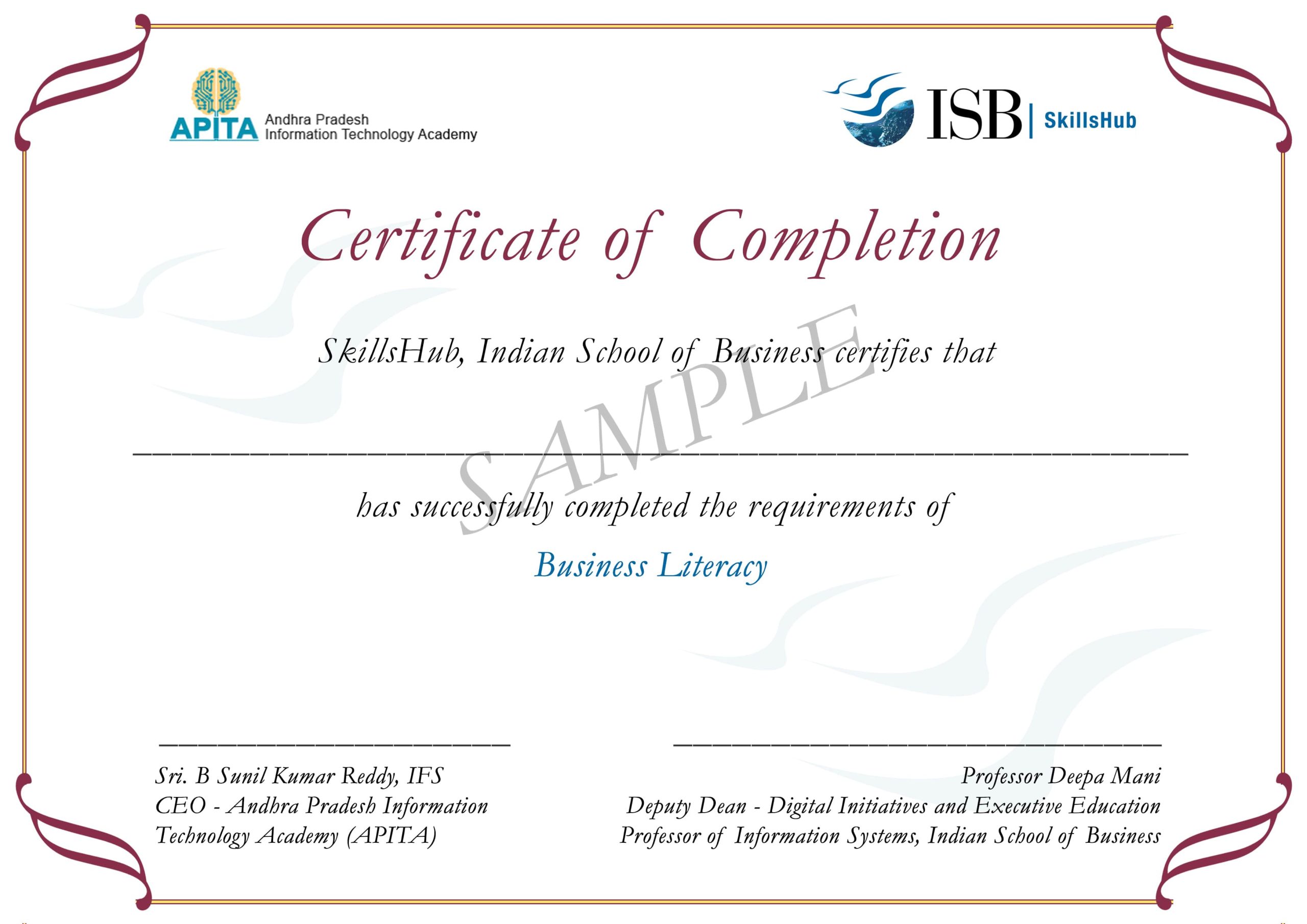Get a strong understanding of business and management fundamentals
Get a strong understanding of business and management fundamentals
The programme comprises three sets of courses – analytical foundations, functional knowledge, and professional management capabilities. An introduction to the analytical basis of decision-making is provided by the courses on Critical Thinking and Statistics for Decision Making. Through these courses, you will hone your ability to make good decisions when responding to challenges and complex situations in both your professional and personal lives.
The second set of courses helps build a core foundation in the critical functions in business – Marketing, Accounting, Finance, and Operations Management as well as fundamental ideas in business economics, competitive strategy and the digital economy.
The final set of courses empower you with the professional capabilities required to be an effective leader and manager, whatever be your level in an organization. You will learn about working effectively in and creating high-performance teams, the theory and practice of negotiation, and effective project management.
Impact
The basic literacy in the language of business acquired in this programme will help you find or transition to new career opportunities, start, or improve your small business, or even apply to business school to continue your education.
Eligibility
Students from any stream currently pursuing a Diploma/ Bachelor’s/Master’s programme from colleges affiliated with APITA are eligible for enrolling in these programmes.
Monthly Batches
A new batch starts on the first Monday of every month.
This course builds a foundation in probability theory, statistical inference and regression analyses. Once you develop an understanding of probability and random variables, you will learn to use sample data and associations among variables for explanation, prediction and problem-solving.
This course will provide you with insights into the tools, models and frameworks that firms turn to develop and execute successful business strategies. This includes approaches and initiatives undertaken by firms to attract customers, deliver high-quality products/services to them and assess and respond to competitor moves to increase market share. Knowledge of different strategies such as cost strategies, differentiation strategies, best-cost strategies and assessment of strengths and weaknesses will help you understand diverse ways in which firms create sustainable performance differences relative to their competition, a concept known as a competitive advantage.
Effective negotiation is fundamental to creating value at all levels of the organization. This course will help you develop a systematic approach to managing negotiations in your personal and professional lives. You will learn to identify the components of effective negotiation, recognise different types of negotiation, and explain aspects involved in distributive negotiation, integrative negotiation and dispute resolution negotiation.
This course will provide a brief introduction to the fundamentals of corporate finance, emphasizing their application to a wide range of contexts from personal finance to corporate decision-making to financial intermediation. You’ll use the concepts of net present value, uncertainty, and strategic concerns to analyze how investment and financing decisions interact to affect the value of the firm.
This course will cover the essentials of marketing principles, processes and tools. Upon completing this course, you will develop an understanding and appreciation of the importance of the marketing function in an organisation, the difference between marketing and sales, several types of markets and their peculiarities, the centrality of customers in any organisation, and what it takes to build a market-oriented organisation, and effect holistic marketing programs.
Information Technology (IT) is fast-changing the world around us. This course on strategies for the digital economy will cover different technology-enabled changes in the business environment, characteristics of competition amongst digital business models, and how insightful executives leverage IT to create value and win competitive battles.

Professor of Marketing (Practice)

Associate Professor, Accounting

Assistant Professor, Organisational Behaviour

Professor of Organisational Behaviour (Practice)

Associate Professor of Finance (Practice)

Assistant Professor, Economics and Public Policy

Associate Professor, Operations Management

Assistant Professor, Information Systems

Visiting Faculty, ISB

Professor of Information Systems

Assistant Professor (Practice), Operations Management

Please contact skillshub@isb.edu for enrollment queries

